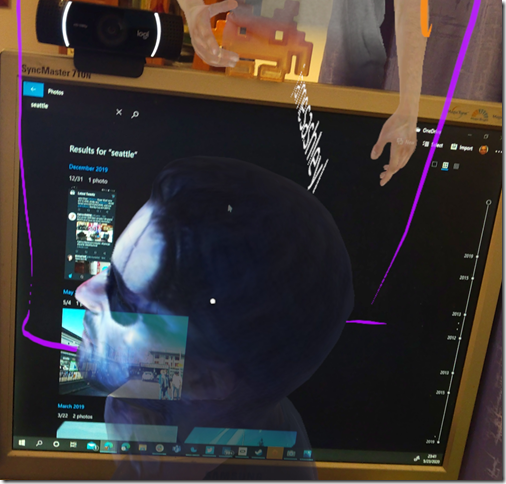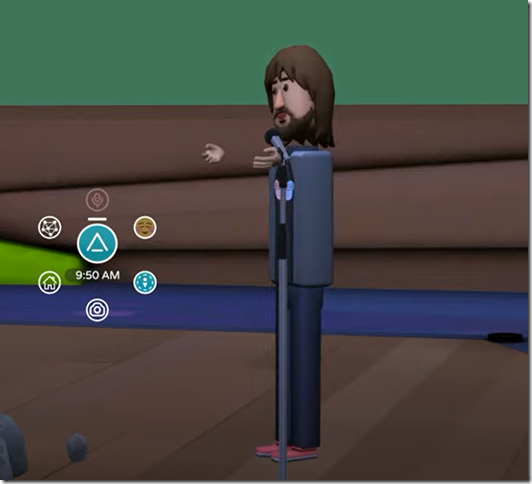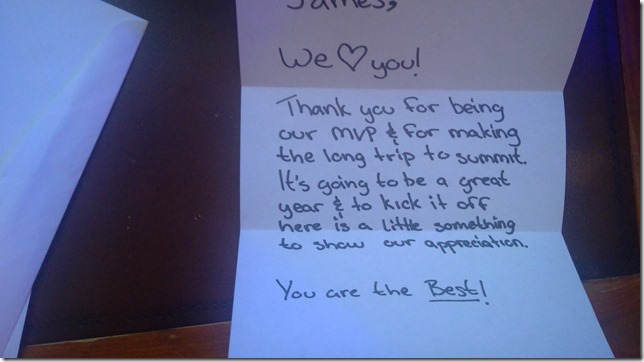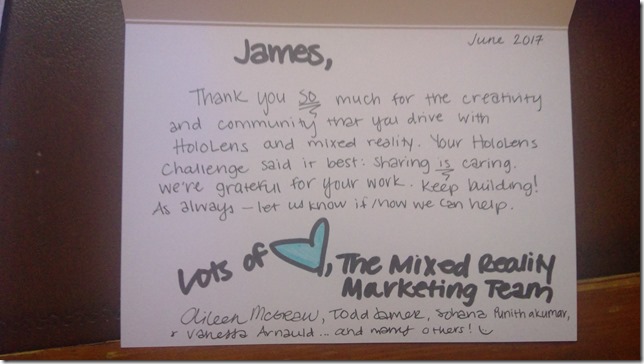
There have been a series of amazing turns of event in the mixed reality world lately. The big headliners for me are:
1) Magic Leap laid off about a thousand employees due to diminishing funds but then was able to get a lifeline of $350 million, which will save the jobs of the remaining 300-400 engineers. The creative teams and sales teams appear to have been gutted in the first round of layoffs, unfortunately.
2) Microsoft HoloLens announced general availability of the HoloLens 2 on the Microsoft Store starting in July. Also availability in more countries starting in the fall.
3) The Unity XR SDK is getting closer to shipping, or has already shipped but is only working well with some platforms for now? Obviously some things need to be ironed out, but this appears to be the future of cross-platform AR development.
4) Spatial.io, the cross-platform XR collaboration platform, has made its product free.
Along with these there have been a series of refreshingly honest video interviews with some of the central people in the current evolution of mixed reality that help to frame our understanding of what has been going on at Microsoft and at Magic Leap over the past five years.
The XR Talk podcast is always great (thanks Roland for introducing me to it). This meandering interview with Graeme Devine, post-Leap, is particularly fascinating. There’s a great story of how he delivered the blade Orcrist (or was it Glamdring?) to Neal Stephenson in order to tempt him to come work with Magic Leap.
This week also saw the hosting of MR Dev Days conference on altspaceVR, which was a fascinating and wonderfully international experience. Big thanks to Jesse McCulloch and everyone else responsible for throwing it together. The highlight of the show was a very frank conversation between Rene Schulte and Alex Kipman which I can’t recommend enough.

During the fireside chat (and the keynote the previous day) Kipman acknowledged the drawn out distribution of the HoloLens 2 and thanked developers for their patience. He also discussed the bucket problem (I think that’s what it’s called?) in which losing a a bucket of credibility requires a lot of buckets to regain that same level of credibility (pretty sure I messed up that metaphor).
We’ve seen a lot of that in the MR world this month. The financial problems at Magic Leap will have put a lot of people off. The fact that all the laid off employees have refrained from criticizing the company in the aftermath has been surprising and probably speaks well for the company culture.
Meanwhile in the HoloLens world, public and private message boards indicate a lot of frustration with the product team. Original messaging suggested the devices would be out in early 2019, but over a year later, individual devs still have problems getting devices.
Looked at objectively, it’s pretty clear that if the HoloLens team could have gotten more devices to indie devs they would have and that the delays were not intentional. But knowing that also doesn’t necessarily make the bad feelings go away, given the difference between knowing and feeling, and this in turn may have a depressing effect on any excitement around the wider release in July and then in the fall.
For what it’s worth, I think an apology goes a long way, and a heartfelt, personalized acknowledgment of the people who might feel slighted will go the greatest way. The difficulty here is that in a corporate culture like Microsoft’s, acknowledgement of mistakes is as alien to the normal way of doing things as – well, to be honest – as it is in the Trump administration. The culture of the Trump administration, after all, comes out of common practice in the modern corporation.
This isn’t always the case, though, and I have two pieces of evidence. Microsoft is very good at giving out chachkas, and even sent out an impressive gift pack for their online Build conference. The two best things I ever got from Microsoft, though, were personalized notes.
The first is a note from the Ben Lower / Heather Mitchell days of the Kinect program. Somebody wrote this out by hand, providing both an acknowledgment of who I am and what I had done (and to be honest, I was surprised they even knew who I was at the time):

The next is a card from the early days of the HoloLens program (Venessa Arnauld / Aileen Mcgraw).
These are my two most prized possessions from Microsoft over the past decade. Friends and associates have similar mementos they memorialize at home. The lesson from these two examples, for me, is that in tech you don’t always have to say you are sorry. It is often good enough, and probably more meaningful, to acknowledge the legitimate concerns, understandable feelings, and obvious humanity of the people who make you successful.
That’s a lot of personalized messages, but also the sort of thing that can easily repair broken or damaged relationships with your developer community.

[…] Tech means never having to say you’re sorry (James Ashley) […]